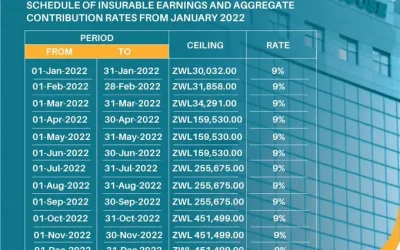This requirement is mandated by Zimbabwean law, specifically Section 4A of the Finance Act and Section 38 (4) of the Value Added Tax (VAT) Act. In the case of DELTA BEVERAGES (PVT) LTD versus ZIMBABWE REVENUE AUTHORITY.
Delta had the following objections.
Respondent (ZIMRA) obliged to accept all taxes in RTGS as the sole legal tender
- In the main, the applicant’s ground of objection, severely truncated, was that the respondent’s refusal to accept the payment of all the applicant’s taxes in the local currency is unlawful because the new Zimbabwe currency has, by statute, been made the sole legal tender. As such, the discharge of tax obligations using the medium of exchange which is the sole legal tender should be regarded as good payment. The respondent is obliged to accept. The respondent has completely misconstrued the non-obstante clauses of s 4A of the Finance Act [Chapter 23:04] and Sect 38(4) of the VAT Act to improperly require that tax on foreign currency receipts be paid in foreign currency. Should it be found that there exists a conflict between s 4A of the Finance Act, as read with s 38(4) of the VAT Act and the subsequent Finance [No 2] Act of 2019 which introduced the new Zimbabwean currency and made it the sole legal tender, then the latter legislation must take precedence and prevail over the older provisions, an approach allegedly in line with the rules of statutory interpretation.
- The respondent’s counter argument is that the applicant has manifestly misunderstood and misconceived the relevant provisions of the law because the payment of taxes in foreign currency on income received in foreign currency is one of the exceptions to the concept of sole legal tender introduced by s 23 of the Finance [No 2] Act of 2019. It argues that the legislation, properly construed, requires that tax on receipts in foreign currency be paid in foreign currency.
- For this particular point, the relevant provisions of the legislation and the parties’ intrinsic arguments are these. By s 44C of the Reserve Bank of Zimbabwe Act [Chapter 22:15], an amendment introduced in 20192, the Reserve Bank of Zimbabwe (“the RBZ”) was empowered to issue an electronic currency in Zimbabwe, but only after the Minister [of Finance] had, through a statutory instrument, given such electronic currency a name. As a matter of historical fact, the Minister, by SI 33 of 2019, gave the electronic currency a name. He called it the Real Time Gross Settlement dollar, or RTGS. It would be legal tender in Zimbabwe at par with the USD at a rate of one-to-one. Its effective date was 22 February 2019. From 24 June 2019 that new currency was made the sole legal tender in Zimbabwe. By s 23(1) of the Finance (No. 2) Act, No. 7 of 2019, itself an amendment introduced via SI 142 of 2009 the use of foreign currencies, including the USD, was outlawed as legal tender in Zimbabwe. The RTGS was made the sole legal tender.
Respondent not entitled to levy penalties in foreign currency.
- The respondent’s amended assessments of the applicant’s foreign currency tax liabilities carried some penalties expressed as a percentage of the tax due. The applicant has objected to them on the basis that penalties are not recoverable in foreign currency as there is no such obligation in law. It is argued that in terms of the tax legislation, tax is payable on taxable income ‘earned, received or accrued’, that as a matter of fact, penalties are not levied on any income ‘earned, received or accrued’ and that therefore, there is no basis for charging civil penalties on tax in foreign currency.
- In response, the respondent argues that a penalty is a tax. It is treated in the same way as any tax. Therefore, a penalty on any outstanding foreign currency tax is payable in foreign currency and a penalty on any outstanding local currency tax is payable in local currency.
The judgment, the answer lies in s 4A of the Finance Act aforesaid. It provides for the payment of certain taxes in foreign currency. In a nutshell, a company, trust or other juristic person is obliged to pay tax in the currency in which the income is earned, received or accrued. Of course, a penalty levied by the respondent on a taxpayer on failure to pay a tax is not, in ordinary parlance, an income ‘earned, received or accrued’.
But in terms of the tax legislation, a penalty is a tax. Section 46 of the Income Tax Act provides for additional tax in the event of a default or omission by a taxpayer in an amount equal to the tax chargeable. In terms of ss (1)(a)(i) additional tax is payable if the taxpayer makes default in rendering a return. In terms of ss (1)(b) it is payable in the event of an omission from a return of any amount which ought to have been included. In respect paras (c), (d), (e) and (f) it is payable in respect of any incorrect statement on a return, any failure to disclose required information on a return, the making of a statement resulting in the granting of greater credit than would be warranted and the failure to disclose prescribed particulars, respectively.


